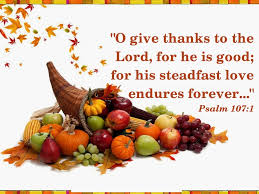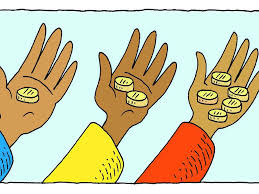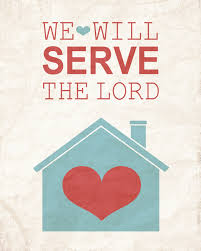
How many of us did that as a kiddo? Before opening a gift, seeking out the giver personally and saying Thank you? Especially if you are 4 years old surrounded by a cohort of kids hyped up on sugar and eager to open the beautifully decorated package to get to the prize inside? Most of us had to learn over years to execute restraint, be polite and show appropriate manners to the gift giver. We had to learn like my grandniece did, to be thankful, and say our thanks first and foremost.
This act of my grandniece inspires me to consider the orientation of my heart and mind as we approach Thanksgiving. The heart of Thanksgiving calls us to be grateful before opening the gift. Before cutting the Turkey or the pumpkin pie. So we gather, and pause before digging in and say Thank You for the blessings God bestows upon us. We say thank you for the presence of our loved ones, those who make a difference in our lives. We pause to examine how God has been present especially in the hard times we have been going through. The feast will taste better if we name what we have learned to old special throughout these difficult days.
One morning several months ago, I was feeling emotionally and spiritually sluggish. Not surprising, because we have been in the midst of a pandemic since March. My suspicion was that I had a vitamin deficiency of gratitude, so I took a tour of our home and pointed out everything that we had been given. The gifts ranged from artwork, to kitchenware, to our favorite books and movie DVDs. Our pets. Pictures of loved ones. The church directories with names of people who have enriched my life and give it meaning. The value was not in the items named, but in the fact that they reminded us of people who had invested in our lives. The gifts simply reminded us of the givers. When we come to see everything we have as a gift, our perspective begins to change, and a strange sensation emerges. I call it joy.
Normally millions of people this week would be thankful for the feast on Thursday that in the past fueled shopping sprees that opened the holiday gift buying season. In years past, we have tended to buy more things at the suggestion of a culture that tells us we do not have enough. We have commercialized the meaning of the holiday and distracted ourselves from asking the big questions of life that derive from being thankful. I am not suggesting that we should not shop. However with the second surge of the pandemic we are living through, millions who have lost jobs, prices rising, income dropping, at a time where we are suffering emotionally, told not to travel and be with extended family and friends this year, we have a challenge to find blessing and be thankful in the midst of difficulty. We are challenged to keep in our hearts the doxology “Praise God from whom all blessings flow” and appreciate the gifts we have been given, but also in the knowledge that the Giver has made Himself known even in our darkest hours. So, our challenge is to take a moment to be still and thank God.
In, our passage of Joel we hear how the land has been decimated by plagues of locusts, which has brought people and animals to the brink of starvation. Ancient people often faced locust swarms, and even today one swarm can wreak incredible devastation. Modern technology can barely contain locust swarms, so we can only imagine their horror in the ancient world.
As a nation we recall similar times of different types of plagues. In 1621 the surviving settlers who lost half their company to disease and starvation come through the event with an act of thanksgiving. President Abraham Lincoln declared Thanksgiving an annual national holiday in November in 1863, in the midst of a deadly Civil War. Lincoln asked Americans to go before God and to “commend to his tender care all those who have become widows, orphans, mourners or sufferers in the lamentable civil strife” and to “heal the wounds of the nation.” Words that ring true today. In the Great Depression, President Franklin D. Roosevelt moved Thanksgiving to the third Thursday of the month to stimulate the economy. So, today we are encouraged to follow the example of giving thanks in and through our suffering and turmoil, as we face now.
Giving thanks is the foundation of our spirituality. I often begin my day thanking the Lord for another day of life. I have no idea what this day will hold. Yet, I do know that the heart of the Giver is geared toward my good and his glory, and I can thus thank Him not only for what has been, but for the gift of another day that I have yet to open and explore.
We give thanks for the food banks, the food pantries working overtime this week to give millions of hungry and food insecure families and persons. There are people who because of the pandemic are going to ask for food for the first time in their lives, who never dreamed they would be standing in line for hours to feed their family. The level of hunger has tripled in US households since 2019. 54 million of our fellow citizens are food insecure. The proportion of American children who sometimes do not have enough to eat is now as much as 14 times higher than it was last year. Long Island has seen an almost 74% increase in food insecurity and triple the applications for food stamps since the Pandemic began in the spring. So our harvest table today represents just a token of the giving of our church family to our neighbors in need.
//Even in the midst of COVID and social distancing, six shut ins received thanksgiving baskets from the deacons.
//COVID may have halted our traditional thanksgiving boxes, but our deacons still led a drive that raised to date $2,500 and reached 65 families through the Freeport Food Pantry. We give thanks to those in hard times give to help others in deeper trouble. We give thanks for this.
In the midst of the uncertainty we are living in, the way to remain healthy, to remain sane, is to take a few moments each day to be thankful. Name whatever you can. It is fitting to set aside a day each year to count our blessings with our friends and families. However, our lives are filled with joy that glorifies God when thankfulness becomes a daily routine and not just an annual holiday.
Not only have we been given good gifts, but we also know the Giver. Take time to give thanks to the gift Giver who promises to restore the years the locust has eaten, the years the pandemic has eaten the years hard times has eaten.
May your meal, not matter who gathers at your table, no matter what’s on your table, be thankful, and may you celebrate the source of your joy.



 RSS Feed
RSS Feed